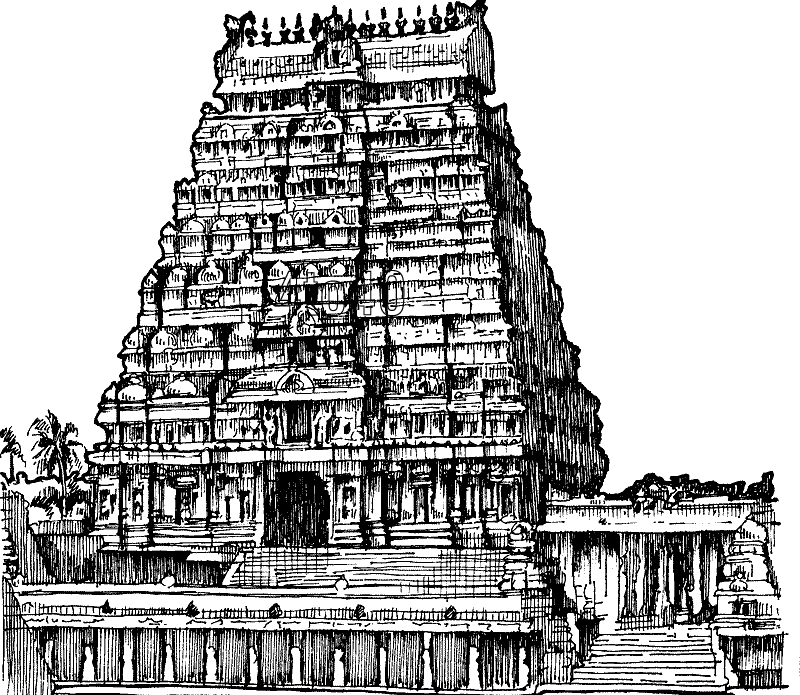LALITHA SAHASRANAMAM - Namah # 171
- S Subramaniam
- Jan 27, 2023
- 2 min read
LALITHA SAHASRANAMAM
@ S. Subramaniam

[ 48 Nishkrodha Krodhashamani Nirlobha Lobhanashini ]
लोभनाशिनी (171)
Lobhanashini (171)
Meaning
Devi destroys greed from the minds of her devotees.
Interpretation

Lobha means greed / miserliness and Nashini means destroyer. Hence Devi is addressed as Lobhanashini. It is generally believed that greed destroys good qualities in a person and needs to be destroyed which, when devotedly prayed before Devi, is duly taken care of by her. That's why she is called Lobha Nashini
When expanded, we get the phrase
(bhaktanam) lobham nasayati sa which means Devi is the destroyer of greed of the devotees.
Greed is the root cause of all sins and crimes that we humans commit. The following Sanskrit sloka clearly says so:
लोभ-मूलानि पापानि, रस-मूलानि व्याधयः ।
इष्ट-मूलानि शोकानि, त्रीणि त्यक्त्वा सुखी भव ॥
Lobha mulani papani, rasa mulani vyadhayaḥ // Iṣhṭa mulani shokani, Triṇi tyaaktva sukhi bhava ॥
Sins have root in greed, diseases have root in taste, sorrows have root in desire, leave the three and be happy.

Trishna and Lobha
The Sanskrit word Trishna literally stands for thirst. In a wider spectrum, trishna can also mean thirst to live or a craving for something. It is considered as the one of the causes - fourth of twelve Nidanas - which results in suffering. In this sense, the two words Trishna and Lobha stand on the same page.
Author's Note
We find several mentions in our scriptures about the importance of not being greedy. Greed destroys a person.

Quote 1 of 5 from Bhagvad Gita
Bhagavad Gita counts greed as one of the three doors that leads to hell:
त्रिविधं नरकस्येदं द्वारं नाशनमात्मन: |
काम: क्रोधस्तथा लोभस्तस्मादेतत्त्रयं त्यजेत् |
Trividham narakasyedam dwaram nasanamatmanah, kamam krodham tatha lobham…

Quote 2 of 5 from Mahabharata
In the Mahabharata, Yaksha asks Yudhishtira: By renouncing what does one become happy? Yudhishtira answers: By renouncing greed.

Quote 3 of 5 from Chanakya Niti
Chanakya makes a specific reference about Lobham or greed while speaking about the qualities of a good student in his Chanakya Niti.
काम क्रोधौ तथा लोभं स्वादुश्रङ्गारकौतुके |
अतिनिद्रातिसेवे च विद्यार्थी ह्यष्ट वर्जयेत् |
Kama, Krodho Tathaa Lobham, Svaadu, Shrangara, Kautuke,
Ati nidra, Ati seve cha vidyaartheeh ashta varjayet.
An ideal student should give up these eight bad habits, namely (i) erotic love (ii) anger (iii) greed (iv) fondness for exotic food (v) beautifying himself (vi) participating in shows and festivals (vii) excessive sleep, and (viii) addiction of any
kind. As a student one needs to concentrate only on studies and not pay attention to the listed eight items.

Quote 4 of 5 from Niti Sataka
Bhartrihari in his Niti Shataka says that if there is one vice, greed, where then is the need for any other vice to be wicked (lobhasche dagunena kim – Niti Sataka 45).

Quote 5 of 5 from Thirukkural
The great Tamil scholar Valluvar has underlined the importance of Virtue by saying Virtue is that which does not cover the four evils Azhukkara, Ava, Veguli and Inna-sol - Envy, greed, anger and harsh words - these four, when eluded, are qualities of virtue.
Disclaimer: All matters contained in this article are the property of www.templesofasia.com. The opinions expressed in this article are purely that of the author. The author alone is responsible for the accuracy, authenticity, completeness and validity of all the information in the article.


Comentarios